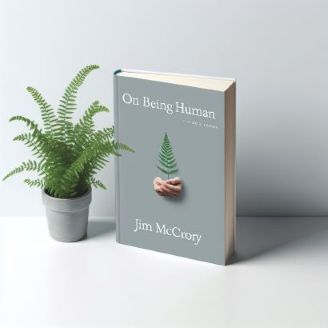
Here I Stand in Scandinavia
I’m in the middle of something, call it nostalgia if you like. My thoughts have drifted back to the nineties, to a time when a phone call, or was it a letter? —arrived from a girl we affectionately called Betsy. She was from Borås, Sweden, a pen pal of my daughters who had reached the age where the pull of travel became irresistible. She wanted to visit Scotland. We welcomed her with open arms, showed her the sights, shared our lives for a few short weeks.
Then came the unexpected invitation. On her return home, she rang and told us her parents had invited us to Sweden. I didn’t need to be asked twice. Something stirred deeply within me—an echo from years before, from a music lesson in St Gerard's, Govan, classroom.
I must have been twelve or thirteen. My teacher wheeled the record player into class and dropped the needle on something I had never heard before. The music of Edvard Grieg poured out, followed later by Sibelius—haunting, majestic, ancient. It wasn’t just music. It was a memory I hadn’t yet lived. As the notes of Morning Mood floated across the room, I felt an ache that bypassed reason. A homesickness for a place I’d never seen.
That place, I now know, was Scandinavia. But more than that; it was Sweden.
There was something in the language, the landscape, the light. And years later, when our vessel, The Princess of Scandinavia sliced through the North sea leading to Gothenburg and we set foot on Swedish soil, I knew. I wasn’t discovering a new country; I was recognising something long buried. Sweden wasn’t foreign. It was familiar. The forests, the lakes, the quiet order of the streets. The reserved warmth of its people. The red cottages nestled into the countryside like punctuation marks in a poem.
I had always loved Norway from afar—Grieg’s fjords and trolls, the crisp clarity of its air. But Sweden offered something else. A gentler melancholy. A stillness. A sense of soul that spoke to mine.
And then there was the song.
Runrig’s Scandinavia gave voice to what I couldn’t name as a boy. “Here we stand in Scandinavia,” it begins—not a geographical claim, but a spiritual one. The line placed me not on a map, but in a moment. A moment thick with memory and meaning. It wasn’t about travel. It wasn’t about tick-box tourism. It was about belonging. A longing for something more than place. A yearning for a home you didn’t grow up in—but somehow never left.
“We watched it rise / In morning skies of fire and wine / The boats that carried us / Young golden lives / Leaving on a rising tide…”
The words took me back—not to Sweden or Scotland—but to the mystery of youth itself. The leaving behind. The silent prayer that life would be kind, that meaning would meet you like an old friend at the docks. That purpose would rise like the sun over Vänern or Vättern.
“Here we stand.” A declaration. But also, a question. Where do we stand? Sweden became more than a country. It became a metaphor, a threshold between this world and the one we’re really yearning for. A homeland of the soul.
The music, like Scripture, whispered of another place. A land where swords are beaten into ploughshares, where winter gives way to everlasting spring. A kingdom we were made for but have only seen in glimpses—in the hush of Swedish woods, in the kindness of strangers, in the soft light over Målsryd at evening.
What I felt that day in the classroom, what was rekindled walking through Sweden's forests and hearing Scandinavia decades later, wasn’t simply nostalgia. It was evidence. A signpost. Proof that we are not accidents of biology but travellers on our way home. As C.S. Lewis said, it is “the scent of a flower we have not found, the echo of a tune we have not heard, news from a country we have never visited.”
Sweden reminded me of that. And though I first heard the call through the music of Norway, it was Sweden that welcomed me in. It was Sweden that gave form to the formless ache.
“There is nothing new under the sun,” Ecclesiastes tells us. True. Yet every time music stirs us, or a northern sky turns gold, or a passage of Scripture burns with fresh fire, we are reminded. We are not yet home.
But we will be.
And until then, here we stand, in Scandinavia, in longing, in hope. Hearts tuned to the music of another world.
Scandinavia: Runrig : https://www.youtube.com/watch?v=kO8xczE0TOU
And take a few moments to listen to André Rieu - Solveig's Song: It may take you to Scandanavia.
Blog Image generated with the assistance of Microsoft Copilot